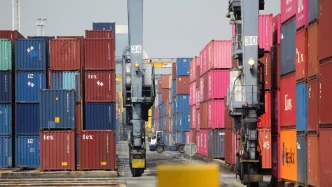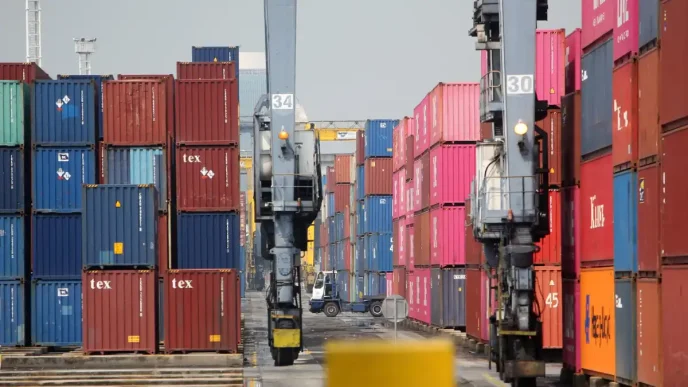In a bold move to invigorate its burgeoning startup scene, Vietnam has introduced a groundbreaking decree that promises to reshape the landscape of domestic venture capital. Decree No. 210/2025/NĐ-CP, set to take effect on September 15, is designed to attract private investment, enhance transparency, and foster a more sustainable startup ecosystem. This policy marks a significant shift in the country’s approach to innovation, reflecting a broader ambition to position Vietnam as a regional hub for entrepreneurship and technology.
A Legal Framework for Innovation
The new decree introduces several pioneering provisions that address long-standing gaps in Vietnam’s legal framework for startup investments. For the first time, the law officially recognizes convertible investment instruments, allowing funds to invest in startups through financial tools that can later be converted into shares or capital contributions. This development is a departure from previous restrictions, where non-traditional investment models lacked formal recognition, often deterring potential investors due to legal uncertainties.
Additionally, the decree grants investment funds the right to pre-negotiate the purchase of new shares in subsequent funding rounds. This provision offers flexibility, enabling funds to secure their stakes and benefits as startups grow. Such mechanisms are critical in a competitive venture capital environment, ensuring that early investors can maintain influence while supporting a startup’s long-term development.
Standardization is another cornerstone of the policy. The decree outlines specific regulations for the organizational and operational models of innovative startup investment funds. Each fund can comprise between two and 30 investors without forming a legal entity—a structure tailored to the experimental and small-scale nature of early-stage venture capital. Moreover, the policy caps a fund’s investment in a single startup at 50 percent of the startup’s charter capital post-investment, a measure intended to prevent over-dominance by any single investor and encourage startups to diversify their funding sources.
To further safeguard financial stability, the decree prohibits cross-investment between startup funds, aiming to eliminate capital spirals and enhance transparency. Funds are also restricted from engaging in commercial lending, guaranteeing loans, or investing in listed securities and bonds on the stock market. These limitations underscore the policy’s focus on nurturing innovation rather than prioritizing financial speculation or profit-driven motives.
Operational Flexibility with Guardrails
Under the new rules, startup investment funds are permitted to invest in innovative small and medium-sized enterprises (SMEs), utilize convertible instruments, and hold rights to purchase shares. They can also park idle capital in term deposits or certificates at approved banks, ensuring liquidity without compromising their core mission. However, the decree explicitly bars funds from making profit commitments to investors during capital-raising efforts, reinforcing the idea that venture capital in Vietnam should prioritize long-term innovation over short-term financial gains.
This structured yet flexible approach is expected to resonate with both domestic and international investors. By providing clear legal guidelines, Vietnam aims to reduce the risks associated with startup investments while creating an environment conducive to experimentation and growth. The policy’s emphasis on transparency could also attract more foreign capital, a critical factor for scaling Vietnam’s startup ecosystem to compete with regional powerhouses like Singapore and Indonesia.
Government’s Broader Vision for Entrepreneurship
The decree aligns with a broader governmental push to foster entrepreneurship through innovation, technology, and digital platforms. At a recent meeting in Hanoi on August 1, Deputy Prime Minister Nguyễn Chí Dũng emphasized the need for a comprehensive strategy to nurture ideas from inception to commercialization. He directed the Ministry of Science and Technology to revise the national startup scheme, ensuring it is grounded in robust political and legal foundations as well as international best practices.
The Deputy Prime Minister stressed that the revised scheme should focus on startups and unicorn enterprises—privately held startups valued at over US$1 billion. He called for a thorough review of existing Party resolutions to identify policy gaps and propose frameworks that better support innovation. The plan, he insisted, must include breakthrough elements to deliver tangible results for Vietnam’s national innovation ecosystem. With a tight deadline, the final draft is expected to be submitted to the Government by August 15.
Potential Impacts on Vietnam’s Startup Ecosystem
Vietnam’s startup scene has been gaining momentum in recent years, with cities like Ho Chi Minh City and Hanoi emerging as vibrant hubs for tech-driven entrepreneurship. The country has seen a surge in digital platforms and innovative SMEs, particularly in sectors like fintech, e-commerce, and agritech. However, challenges such as limited access to capital, regulatory ambiguity, and a lack of scalable investment models have hindered growth.
The new decree could address many of these pain points. By legitimizing convertible instruments and share purchase rights, it offers investors greater flexibility and security, potentially unlocking a wave of domestic and international funding. The cap on investment ratios also encourages startups to seek diverse backers, reducing dependency on a single fund and fostering a more resilient financial base.
Transparency measures, such as the ban on cross-investment and profit commitments, may help build trust in Vietnam’s venture capital market. This is particularly important in a region where financial scandals and opaque practices have occasionally deterred foreign investors. If implemented effectively, these regulations could position Vietnam as a credible destination for venture capital, rivaling more established markets in Southeast Asia.
However, the policy’s success will depend on execution and complementary measures. While the decree provides a legal scaffold, startups still face systemic challenges, including bureaucratic hurdles, limited access to mentorship, and a shortage of skilled talent. Addressing these issues will require coordinated efforts across ministries, as well as partnerships with private sector stakeholders and international organizations.
Regional Context and Competitive Edge
Vietnam’s policy comes at a time when Southeast Asia is witnessing intense competition among nations vying to become the region’s startup epicenter. Singapore has long dominated with its investor-friendly policies and robust infrastructure, while Indonesia and Malaysia are rapidly scaling their ecosystems through government-backed initiatives. Thailand, too, has introduced measures to support tech startups, particularly in Bangkok and Chiang Mai.
By rolling out Decree No. 210/2025/NĐ-CP, Vietnam signals its intent to carve out a distinct space in this competitive landscape. The focus on sustainability and transparency differentiates it from peers who may prioritize volume over quality in startup growth. If the policy catalyzes a surge in venture capital—particularly from private sources—it could accelerate Vietnam’s transformation into a digital economy, aligning with the government’s broader economic goals.
Moreover, the emphasis on unicorn enterprises in the revised national startup scheme reflects an ambition to create globally competitive firms. Vietnam already boasts a handful of unicorns, such as VNG and Tiki, but scaling such companies requires sustained investment and policy support. The new decree could serve as a catalyst, provided it is backed by initiatives to improve infrastructure, education, and market access.
Looking Ahead
As Decree No. 210/2025/NĐ-CP prepares to take effect, all eyes are on how it will shape Vietnam’s startup ecosystem. The policy’s innovative provisions and focus on transparency are promising, but their real-world impact remains to be seen. Will this decree unlock the floodgates of venture capital, or will systemic challenges continue to stymie growth? For now, Vietnam’s entrepreneurs and investors alike are cautiously optimistic, hopeful that this marks the beginning of a new era for innovation in the country.
















